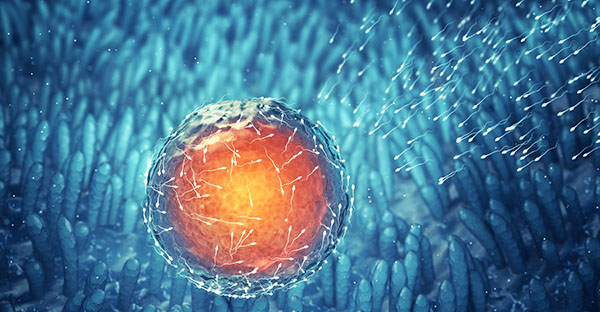Epigenetics is one of the hottest fields in life sciences. It’s a phenomenon with wide-ranging, powerful effects on many aspects of biology, huge potential in medicine, and wide implications for healthy fertility.
Cath Ennis is a Vancouver-based project manager and grant writer in the field of cancer genomics and epigenomics, and she explains epigenetics this way:
“Epigenetics is essentially additional information layered on top of the sequence of letters (strings of molecules called A, C, G, and T) that makes up DNA.
If you consider a DNA sequence as the text of an instruction manual that explains how to make a human body, epigenetics is as if someone’s taken a pack of highlighters and used different colours to mark up different parts of the text in different ways. For example, someone might use a pink highlighter to mark parts of the text that need to be read the most carefully, and a blue highlighter to mark parts that aren’t as important.”
Particularly interesting: These mark-ups are hereditary and they can be altered in response to exogenous impacts, such as our lifestyle!
Now, these epigenetic ‘highlights’ don’t come into existence out of thin air – they are formed in an intricate succession of biochemical reactions. For these reactions to run smoothly, cells require a healthy surrounding and a whole bunch of vitamins.
Dr Yves Ménézo is a renowned fertility expert and currently ART Department Director of the Meraux Foundation. In a review article he published in 2016 in the renowned science journal ‘Reproductive BioMedicine Online’, he describes that healthy fertility can be impaired by defective epigenetics. Interestingly, he links occurrence of epigenetic alterations to oxidative stress.
Oxidative Stress
Oxidative stress is essentially an imbalance between the production of free radicals and the ability of the body to counteract or detoxify their harmful effects through neutralization by antioxidants.
Oxidative stress, Dr Yves Ménézo points out in this article, interferes with healthy epigenetics in a variety of ways:
One aspect is that DNA sites vulnerable to oxidative stress at the same time are also important targets for epigenetic ‘highlights’. If these DNA-parts have been affected by oxidative damage, however, they cannot be properly detected for epigenetic highlights any more.
Another aspect is concealed in the interwoven biochemical reactions that link metabolism of a major antioxidant, glutathione, folic acid and a major donor for methyl groups which are commonly used by the body for marking-up DNA. Due to this association increased oxidative stress results in a lack of methyl-groups to be used for proper epigenetic markings.
Finally, the body detects these alterations, however, trying to fix them, ends up randomly highlighting wrong parts of DNA…
Oxidative Stress Impacts Epigenetics
Altogether, oxidative stress thus leads to heritable changes in the epigenetic markings and can affect fertility and also health of the future child. Dr Ménézo gives us a few examples:
It is well documented that paternal lifestyle (which directly and indirectly determines the state of oxidative stress in the body) influences embryo development and health of children – epigenetics!
Paternal obesity is a particularly frequent example and age, too, has been found to be associated with elevated levels of oxidative stress, alterations in methylation status and increased risk of neurological disorders – epigenetics!
Oxidative stress during pregnancy alters fetal epigenetic patterns and leads to cardiovascular disease and maternal diabetes (associated with increased oxidative stress) increases the risk of autism disorders in children – epigenetics!
So what does this mean for you?
In addition to sticking to healthy choices well before conception, it is vital to protect vulnerable sperms and oocytes from increased oxidative stress and supply the body with ample antioxidants. Good sources include seasonal, organically grown fruits and vegetables. 5 servings a day should be a minimum.
In addition to that, folic acid uptake is required to meet recommendations to support healthy epigenetics.
If unsure, opt for Fertilovit micronutrient preparations supplying your body with ample antioxidants and highly-dosed folic acid!
References:
https://www.theguardian.com/science/occams-corner/2014/apr/25/epigenetics-beginners-guide-to-everything
Menezo Y, Silvestris E, Dale B, Elder K. Oxidative stress and alterations in DNA methylation: two sides of the same coin in reproduction. Reprod BioMed On 2016; 33:668-683








I enjoyed your wonderful blog.
Thank you for the very hard work done.
Thank you for the article.
Great blog that I enjoyed reading.
Thank you for the article.
Great blog that I enjoyed reading.
Thank you very much for your blog.
I enjoyed reading this article.
[…] total sperm count. It is well known that spermatozoa are particularly vulnerable when it comes to oxidative stress in the reproductive tract and antioxidants can protect sperms from oxidative […]